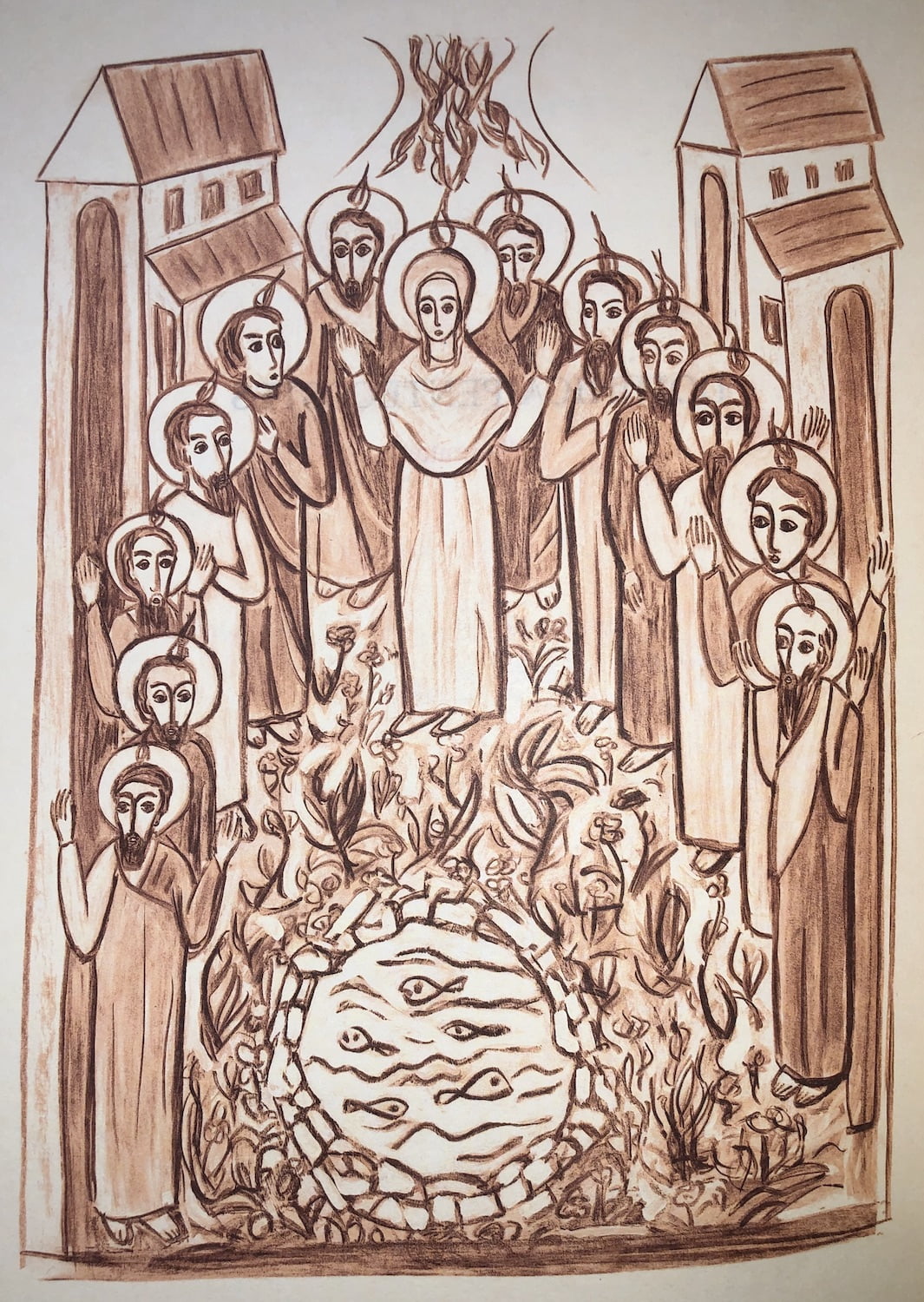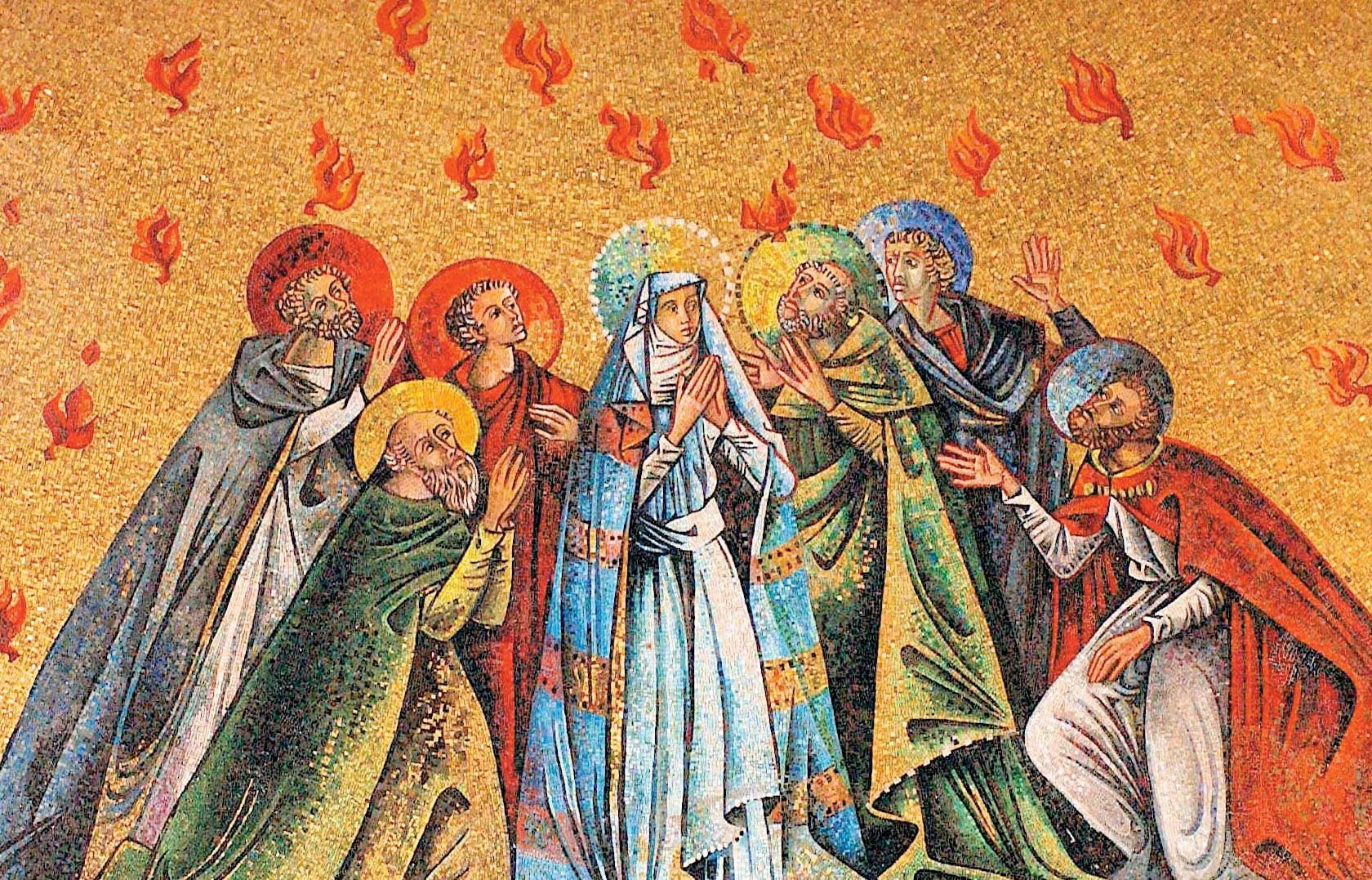Coming of the Holy Spirit — Pentecost
On Sunday, May 19, 2024, the Catholic Church celebrates the sending of the Holy Spirit – Pentecost. The 50th day after Easter marks the end of the Easter season. The day of Pentecost completes Easter by the sending of the Holy Spirit, which is revealed and shared as a divine person. This day reveals the Holy Trinity in its fullness. The Kingdom proclaimed by Christ is now open for those who believe in him. The pouring of the Holy Spirit reveals the Church to the world.
Time to listen to, meditate about, and respond to the Word of God.
The roots of this feast can be found in Judaism. The Book of Leviticus (23:15-21) mentions the celebration of the harvest that starts at Easter and is concluded at Pentecost. Alternatively, it was also called Feast of Weeks (Deut 16:9) when an offering of the sheaf of firstfruits was presented to the Lord (Num 28:26). In later Judaism, the festival became associated with the giving of the new law and the making of the covenant at Sinai. This one-day celebration offered the reading of the Book of Ruth. Celebrating this feast day, the Christians also give thanks for harvest – the founding of the Church is the harvest and Pentecost is the beginning, or birthday of the Church.
How does God talk to people? Human communication has nothing mysterious to it. We get to know other people by listening to their words. Words bridge the gap between people. They allow us to know more about each other and get closer to each other. Christians since the beginning regarded the Bible with respect since it contained words that bridge the gap between God and people – the Word of God. The Bible even goes one more step farther – it shows how the Word of God becomes the Body and Blood of Jesus Christ. Listening to his words, we listen to the word of God. Loving him, we love God himself.

Prayer will only result in love and transformation into better persons if we learn to listen. True Christian prayer, therefore, does not start by diving into transcendent states of our mind, but by listening to the words coming from God and uttered by Jesus. Reading the Scripture and prayerfully absorbing it into our hearts means listening to God who speaks to us.
The entire liturgy of the Pentecost Vigil allows this experience through readings, prayers, and chants permeated by the words of the Scriptures. They prepare us for an encounter with the risen Savior in the Eucharist.
What is Vigil
- vigil (derived from the Latin word „vigilia“ — „wake“) is a liturgical celebration on the eve of a Christian holiday
- traditional preparation for a specific feast or a particular event by waking and praying
- Christian liturgy preserves reports about vigils as early as the 5th century
- the most known vigils in the Roman rite are the:
- Easter Vigil on Holy Saturday
- Christmas Vigil on Christmas Eve
- Pentecost Vigil on the eve of Pentecost Sunday
Content of the Pentecost Vigil
- The prayer of the Vesper Psalmody from the Liturgy of the Hours
- The Liturgy of the Word: four readings from the Old Testament and two readings from the New Testament
- The Liturgy of the Eucharist
- Magnificat and final blessing


